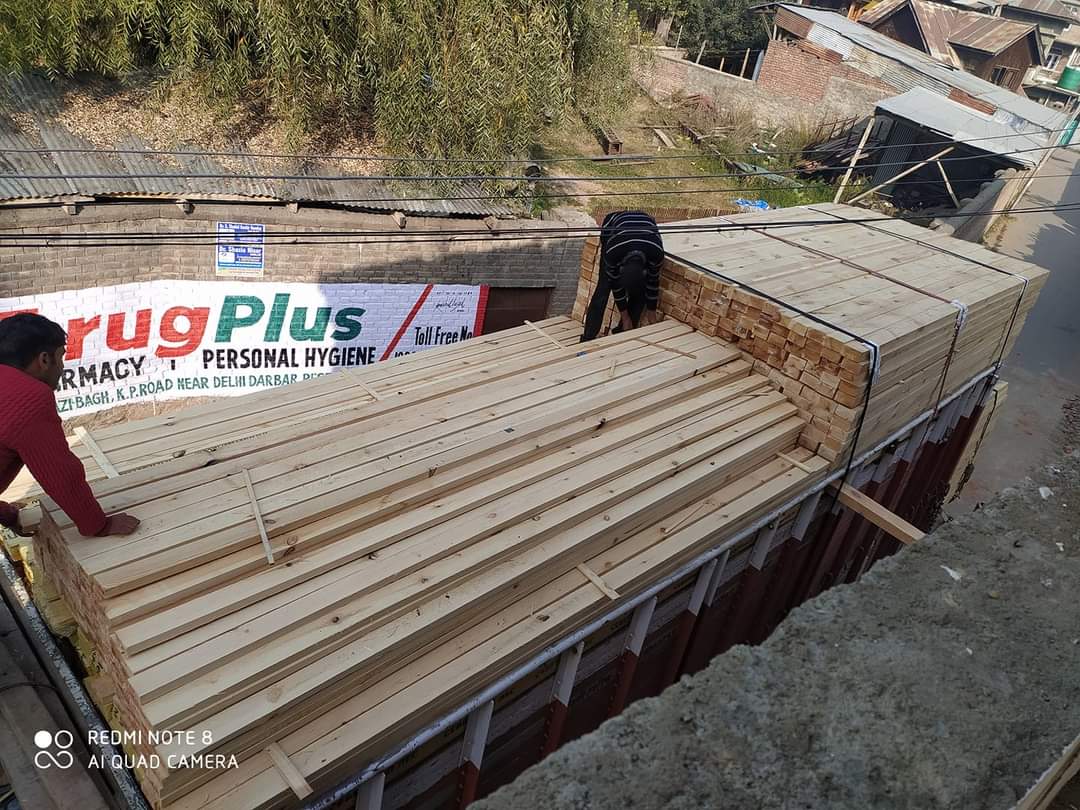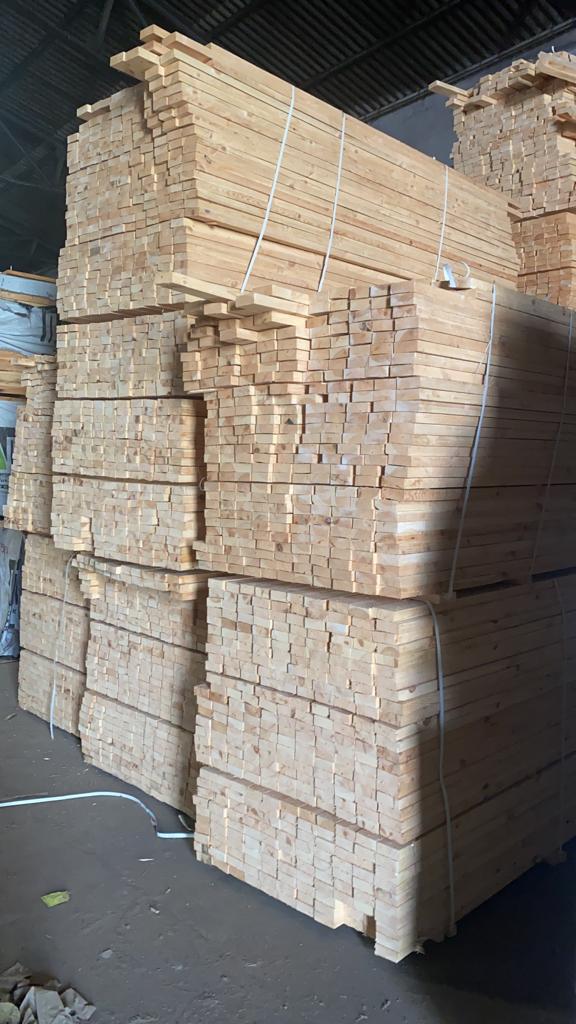For nearly a fortnight now, Fayaz Ahmad has been trying to place his regular orders with his Gujarat-based timber suppliers. But the growing unresponsiveness has only made his otherwise crowded store a deserted commercial unit now.
In the emerging supply-suspension scenario, the Kashmiri merchant in his late thirties said his trade has nosedived.
“Our wholesalers in Gujarat are avoiding us like never before,” Ahmad said.
“Some aren’t receiving calls, while others are citing unavailable stock for freezing our orders. Those ready to load are charging surplus amount.”
Sailing in the same boat is Omar Bhat whose Gujarat-based timber suppliers have become reluctant to transport timber in Kashmir.
“We are compelled to close down our industry at the moment due to the unavailability of timber stock,” Bhat, a South Kashmir-based wood industrialist, said.
“It’s getting hard to survive in the current situation.”
But Why’s Gujarat Reluctant?
To explore the troubled timber situation of the valley where the construction season is all set to spring up, this reporter visited over a dozen timber traders in Srinagar and elsewhere. Among them was Jamal Traders.
“Almost all the timber merchants in Kashmir purchase goods from Gujarat,” the proprietor told The Himalayan Post.
“But since our Gujarati suppliers import their stocks from the war-ravaged country, the ongoing battle has stopped the timber supply.”
Due to the western Indian state’s wood reliance on Ukraine, Kashmiri traders say the ongoing war has already affected 70 per cent of their business and shot up prices by 20 per cent.

Syrian Moment for Kashmir?
Some timber traders are drawing parallels with Syria – the preferred market for Kashmiri carpets before the Middle Eastern country became a battleground of ideologues some years ago.
“Once the valley-based carpet traders lost their prime overseas market to war, they started looking for alternate markets,” said Meeran Khan, a timber trader from Srinagar.
“But the market exploration isn’t easy. It takes time, resources, investment and patience. And then, with one wrong move, it all goes down the drain.”
Since war and pandemic are known to shift the global order and market, Khan said, Kashmir witnessed the same situation when Covid dented the Chinese carpet market during the mid-2020, and surged the demand for Kashmiri carpets.
“As contemporary commerce activities aren’t confined to borders anymore,” Khan, holding Masters in Economics, said, “therefore the global disorder always has local consequences.”
Kashmir’s Foreign Timber Affair
But despite some of these timber traders drawing a global outline for the local dearth, many are still wondering – why’s the valley “rich in green gold” outsourcing Ukrainian wood from Gujarat?
To know the answer, I met Fayaz Khuroo, a prominent wood industrialist from Srinagar’s Parimpora area.
In Kashmir, he said, people prefer imported timber than the local wood.
“Kashmiri timber is three times costlier than the imported one,” Khuroo said. “This is the reason why this foreign timber is in great demand in the valley.”
The local deodar timber, for example, is Rs. 4200 per cubic feet, while the imported Ukrainian wood barely costs Rs. 1500 per cubic feet.
“Since the foreign wood is affordable,” Khuroo said, “why would people prefer costly Kashmiri wood?”
But the growing demand for the same imported wood is being disrupted by the war and the “distress market strategy” by the Gujarati wholesalers now.
“Those Gujarati timber suppliers have deliberately dumped the goods,” Khuroo said, “so that they can sell them at higher prices amid the raging war.”

Grouse from Gujarat
In the backdrop of belligerent timber crisis in the valley, this reporter contacted Akhlesh Manglik, owner of the Green Gold Timber in Gujarat.
Since the Russian invasion began in Ukraine, Manglik said, no timber is coming from the foreign countries.
“We haven’t received any new stocks and due to which the rates have increased by more than 20 per cent,” Manglik said.
“The prices are likely to shoot up further, if the war rages on.”
As of now, he said, the suppliers in Gujarat are not selling the remaining timber “as we don’t know when the war would end”.
Kashmir in Global Crisis
Many Kashmir-based timber traders told The Himalayan Post that even if they buy timber at the higher prices from Gujarat, they won’t find any takers in the valley.
“This Ukrainian timber is mainly preferred for its pocket-friendly nature,” said Mushtaq Misgar, another timber store owner in Kashmir.
“When the same wood becomes pricey, the local priorities shift. I recently purchased paneling at an increased rate from my Gujarati wholesaler, but not a single Kashmiri retailer bought it and ended up affecting our business.”
Comment on Construction
But as the war is still ravaging Ukraine, these timber traders are predicting a crippling construction phase in the valley.
“I believe,” Misgar said, “Kashmir’s construction speed will slow down till the Russia-Ukraine war is raging on.”